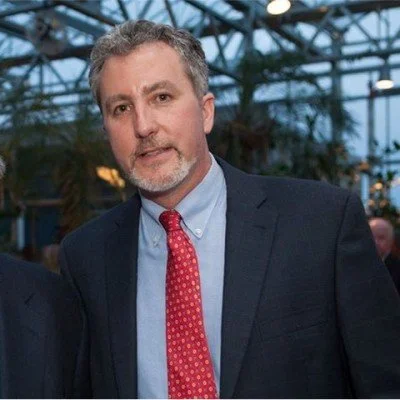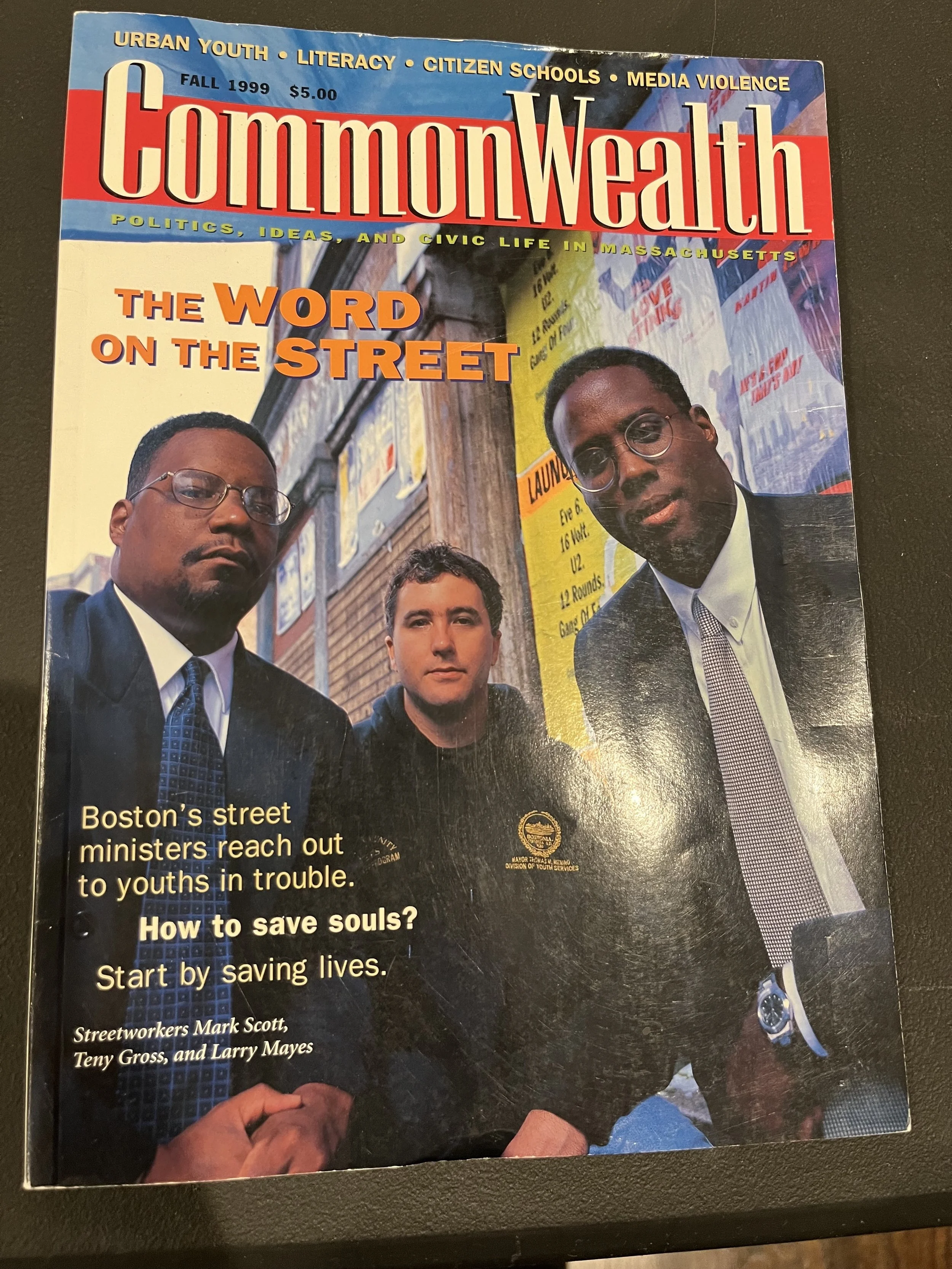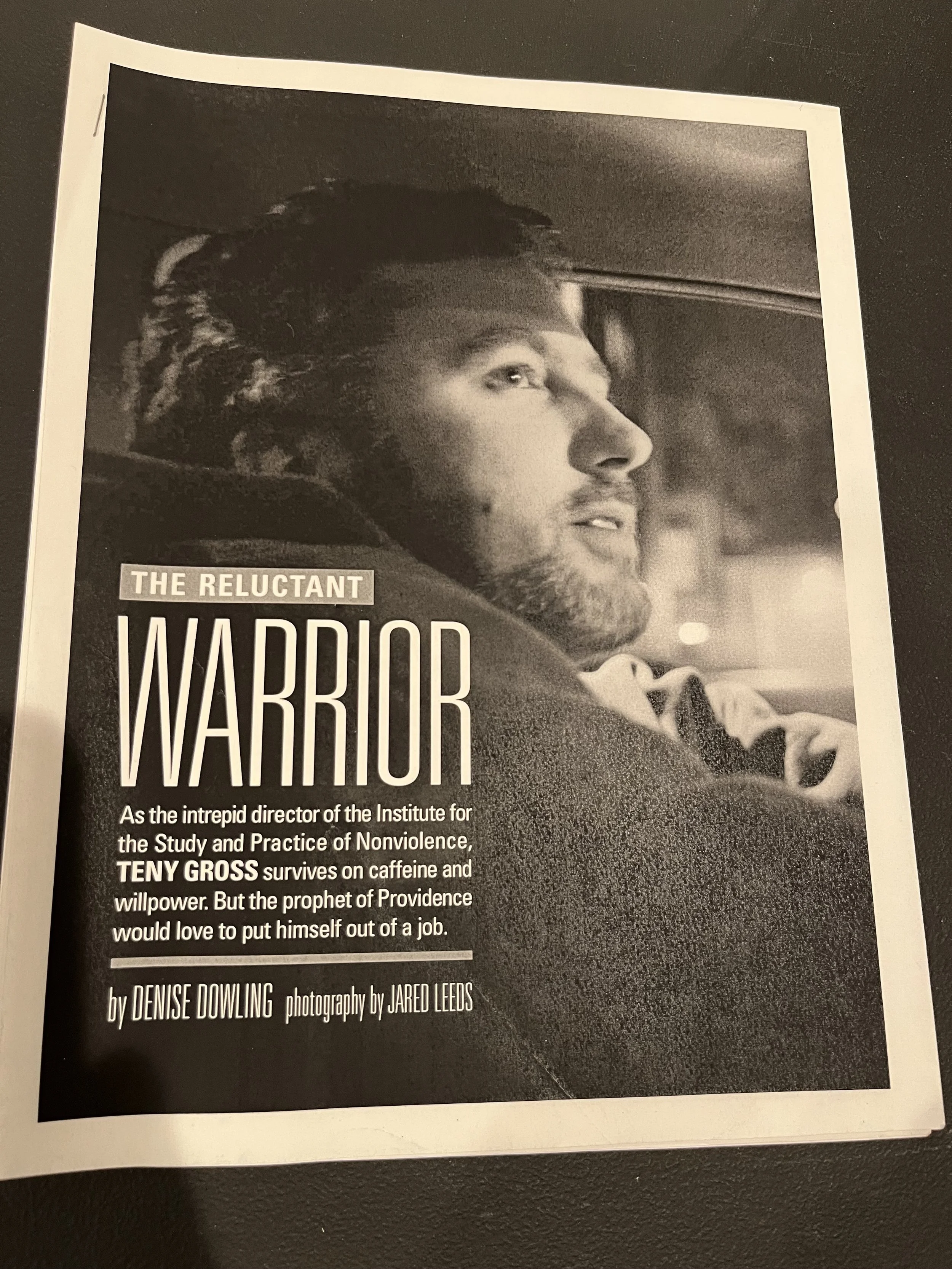Teny Oded Gross
A veteran of the Israeli Defense Force and of trying to build peace between Palestinians and Israelis, Teny began his career in ending violence as a senior street worker for the city of Boston. He was later recruited for the position of CEO at the Nonviolence Institute in Providence, RI. Teny has a Bachelors in Fine Arts from Tufts, a Masters of Theological Studies from Harvard, and a fellowship in Strategic Perspectives in Nonprofit Management from Harvard Business School.
I first met Teny at Brookline’s Temple Israel’s gathering to support Soldiers against Silence, a conscientious objectors group of former Israeli soldiers opposed to the occupation of Palestine. In the Q&A session we made sense to one another and began to talk.
Teny was a Tufts University senior majoring in philosophy, but also enrolled in the Tufts University Museum School for the Arts, concentrating in photographic arts. I asked him to consider joining my EPIIC Colloquium that year, 1989, on “Transformations in the Global Economy.” (link) He brought a very distinctive, wise sensibility to our class . He was a bit older, and certainly more mature than his peers. An officer and veteran of the Israeli Defense Forces, after his service he had taken off to tour Europe as a motocross racer and mechanic.
He never lorded his obvious talents over his fellow students. He was chosen by his peers to introduce and dialogue with the Nobel Laureate, Amartya Sen (link), at the EPIIC symposium of that year. (Professor Sen was my inaugural Doctor Jean Mayer Award for Global Citizenship, the first recipient of the award I gave in honor of my friend, Jean, the President and Chancellor of Tufts University. Professor Sen, a valued colleague of Jean’s, was known, as recorded in a New York Times article, as the moral conscience of the dismal science, economics.)
Teny and I had long conversations over that first year, on Israeli politics, inequality, sports…whatever, often in my car, droving him home. I was soon to learn that Teny was a photographer with a distinctive social conscience and consciousness. Teny, an Israeli of Serbian-Croat background, went to live in the Ella Baker House (link) in Dorchester and used photography with young, at-risk African-American street kids, teaching them to document their lives in exhibitions of their work and as a means of communication. He entered their world to counsel them on what he was passionate about: social justice, equality, and non-violence.
As a Harvard’s Divinity School graduate and was very involved with the inner city clergy of Boston as a street minister. He was featured in this 1999cCommonwealth cover story, “The Word on the Street: Boston’s street ministers reach out to youths in trouble - How to save souls? Start by saving lives.”
Teny left Boston to assume the directorship of Providence Rhode Island’s ’s Institute for the Practice and Study of Nonviolence. This article from Rhode Island Monthly (April 2006), “The Reluctant Warrior, spoke of him appropriately as “intrepid” and as the “prophet of Providence.”
This Harvard alumni magazine article “Taking it to the streets” speaks to his passion for mentoring and the efficacy of nonviolence. Teny was a frequent participant in many of our Tufts Institute for Global Leadership programs. He worked closely with “street bangers,” former gang members who had been released after serving their prison terms, as his front-line troops.
Our students worked meaningfully with his street workers. One, special man was David Cartagena, who passed away in 2010. My son Nathaniel who worked on researching the school-to-prison pipeline with him, wrote this eulogy for David:
The loss of such a man as David is unthinkably tragic, both for those he loved and inspired and for those he never got a chance to influence. The Tufts community was fortunate enough to hear David speak about youth and the urban poor during the 2008 EPIIC Global Poverty and Inequality Symposium and again in 2009 when he addressed the challenges of urban crime and violence at EPIIC’s “Cities: Forging an Urban Future” symposium. David was tireless in his pursuit of peace. He spread his infectious enthusiasm and unflinching commitment to nonviolence from Providence, Rhode Island to Portland, Oregon, reaching all the way to Antigua, Guatemala. Charming and intelligent, David was equally comfortable helping gang members turn their lives around, a path he himself followed, or conversing with heads of state as he did during the Project on Justice in Times of Transition’s “Leaders of the Present” Conference. Today there is a little less joy, a little less love, and a little less courage for us as a community to draw on. David was an extraordinary man who rose from difficult circumstances to make a difference for everyone around him. His impact as a peacemaker, as a leader, as a father, as a friend and as a person will never be forgotten and together we must strive to keep his legacy alive. David often spoke about the need to reach out and touch others with love. David lived these words, advocating for kids that had no one else to help and encourage them. Now, we as a community must not allow this responsibility to go unfulfilled.
Teny is tenacious and powerful, modest and thoughtful. He is to my mind, a quintessential Trebuchet mentor.



